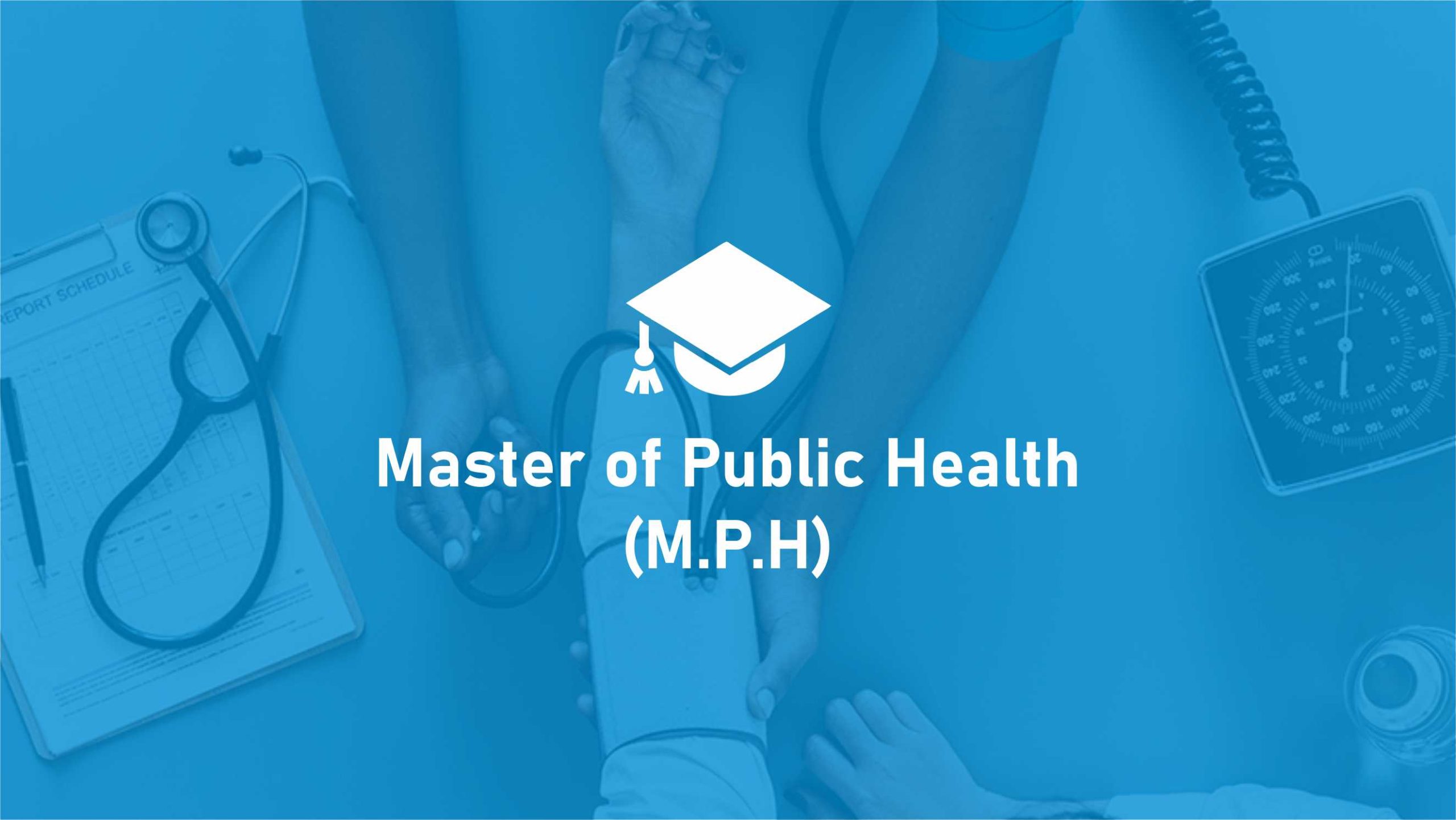The Master of Public Health (MPH) is a highly sought-after and versatile professional degree that equips individuals with the knowledge and skills to tackle complex public health challenges. With a focus on disease prevention, health promotion, and population-level interventions, MPH graduates play a vital role in shaping healthier communities and improving the overall well-being of populations. This article explores the significance of the MPH degree, its core components, career opportunities, and the impact of MPH professionals on global health.
Understanding the MPH Degree
The Master of Public Health is a postgraduate degree that provides comprehensive training in public health principles, epidemiology, biostatistics, health policy, environmental health, social and behavioral sciences, and more. MPH programs typically emphasize evidence-based approaches, research methodologies, and the application of public health theory to real-world problems. The degree is designed to prepare individuals to work in diverse settings, such as government agencies, non-profit organizations, healthcare institutions, research institutes, and international health organizations.
Core Components of MPH Programs
While the curriculum of MPH programs may vary between institutions and specializations, several core components are commonly found in most programs:
a. Epidemiology: Epidemiology is the study of the distribution and determinants of diseases in populations. MPH students learn how to design and conduct epidemiological studies to understand patterns of disease occurrence and develop effective prevention strategies.
b. Biostatistics: Biostatistics involves the application of statistical methods to analyze public health data. MPH students gain skills in data analysis, interpretation, and drawing conclusions from research findings.
c. Health Policy and Management: This component focuses on health policy development, health systems, and the management of healthcare organizations. MPH graduates are equipped to address health policy issues and manage health programs efficiently.
d. Environmental Health Sciences: Students explore the impact of environmental factors on public health, including air and water quality, sanitation, and occupational health hazards.
e. Social and Behavioral Sciences: Understanding human behavior and social determinants of health is crucial for crafting effective public health interventions. MPH students learn about health behavior theories and social influences on health outcomes.
f. Global Health: With an increasingly interconnected world, global health has become a critical area of study within MPH programs. This component addresses the challenges of addressing health issues that transcend national boundaries.
Specializations and Concentrations
MPH programs often offer a range of specializations or concentrations to allow students to tailor their studies to specific areas of interest. Some popular MPH specializations include:
a. Epidemiology: Focusing on disease surveillance, outbreak investigation, and data analysis.
b. Health Policy and Management: Preparing students for leadership roles in health administration and policy development.
c. Environmental Health: Concentrating on environmental risk assessment and public health interventions related to environmental factors.
d. Community Health: Emphasizing community-based approaches to health promotion and disease prevention.
e. Global Health: Addressing health disparities and international health challenges.
Career Opportunities for MPH Graduates
The versatility of the MPH degree opens up numerous career opportunities for graduates across various sectors of public health:
a. Public Health Officer: Working with government agencies, MPH professionals oversee public health programs, monitor disease trends, and develop policies to protect community health.
b. Epidemiologist: Conducting disease surveillance, investigating outbreaks, and analyzing health data to inform public health responses.
c. Health Policy Analyst: Contributing to the development and evaluation of health policies and programs at local, state, or national levels.
d. Healthcare Administrator: Managing healthcare facilities and organizations to ensure effective and efficient delivery of healthcare services.
e. Global Health Specialist: Working with international organizations to address global health challenges, such as infectious diseases, maternal health, and nutrition.
f. Environmental Health Specialist: Identifying and mitigating environmental health risks in communities and workplaces.
g. Community Health Educator: Designing and implementing health education programs to promote healthy behaviors and improve community health outcomes.
Impact of MPH Professionals on Global Health
MPH professionals play a crucial role in advancing public health at the local, national, and global levels. Their work contributes to:
a. Disease Prevention: Through epidemiological studies and surveillance, MPH professionals identify disease patterns and implement preventive measures, reducing the burden of infectious and chronic diseases.
b. Health Promotion: MPH graduates design and implement health promotion initiatives, empowering communities to adopt healthier lifestyles and behaviors.
c. Health Equity: MPH professionals address health disparities and work toward achieving health equity, ensuring that all individuals have equal access to health resources and opportunities.
d. Emergency Response: During public health emergencies, such as pandemics or natural disasters, MPH professionals are at the forefront of coordinating response efforts and protecting public health.
e. Policy Development: MPH graduates influence health policies and advocate for evidence-based interventions, leading to positive health outcomes for populations.
Conclusion
The Master of Public Health degree plays a critical role in addressing the multifaceted challenges of public health in an ever-changing world. By equipping graduates with a diverse skill set and knowledge base, MPH programs prepare professionals to make meaningful contributions to health promotion, disease prevention, and health equity. With the dedication and expertise of MPH graduates, the vision of a healthier future for individuals, communities, and the global population becomes increasingly achievable. As public health challenges continue to evolve, the impact of MPH professionals remains pivotal in shaping a healthier and more prosperous world for all.

